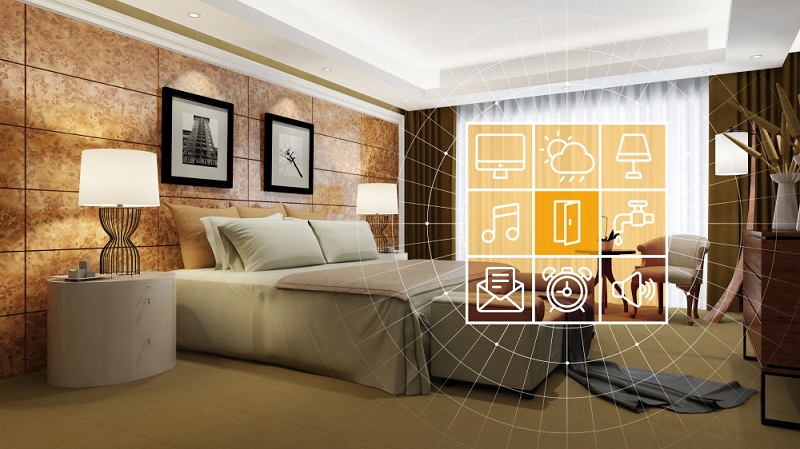For the rest of this decade, travelers will see many hotels transform into facilities that place a high value on the guest experience. Wireless technology, sensors, and software are converging into the "smart hotel", as early pioneers lead the way. Here's a look at what this transformation means for hotels and guests.
Management Software and Superior Connectivity
One of the most important ways hotels transform the guest experience is by providing reliable high-speed internet and overall superior connectivity. Touchpoints, such as the customer service desk, should be seamless experiences for guests due to the hotel's high-quality connectivity. Using the right technology allows for quick check-ins and check-outs, which guests notice and appreciate.
Business travelers particularly need to stay at a hotel with reliable internet so they can get work done on the road. Hotels with inconsistent internet are red flags to business travelers to find alternative lodging, especially for those who depend on the internet for business continuity. A modern hotel can prepare guests for travel by phone, its website, or other digital methods of communication.
Using the right management software is part of the key to smart hotel transformation. In order to reduce the learning curve for employees, the software must be intuitive and user-friendly. Ideally, it allows you to store profiles of your guests and keep logs of your interactions with them. Eventually, accumulating massive amounts of target market data, machine learning software can help search historical data quickly to provide recommendations on how to resolve guest concerns.
Learn Your Customers on a Personal Level
The more data your hotel collects on guests, the more you can learn about personalizing your service for each patron. Filling up customer profiles with relevant information including real-time data will give you an edge over competitors that avoid modernization. You'll know the guest's history and expectations, allowing you to keep improving the guest experience.
Implement Smart Segmentation
With endless analytics to drive how hotels transform the ways they engage with guests, a lodging property can use smart segmentation to understand its target market even more deeply. Segmentation involves categorizing customers into segments based on certain shared attributes, such as purchasing history. Organizing this data with an app turns the strategy into "smart segmentation." It's helpful if this data can be integrated with customer relationship management (CRM) software or a sales automation app.
Allow Engagement, but Prioritize Data Protection
Hotels have a responsibility to protect the privacy of guests if they want to gain long-term trust and loyalty. Offering Wi-Fi connectivity is beneficial to guests, but it opens the door to cyber threats, so it's essential to prioritize cybersecurity. The safe and proactive approach for hotels is to centralize data for consent management, audit the infrastructure periodically to detect vulnerabilities, and comply with federal, state, and local regulations on consumer privacy.
As hotels transform to embrace smart technology that creates more conveniences for travelers, the hospitality industry will witness a rebirth with a fresh new vision. Collecting data on guests is leading to greater personalization and efficiency. Does your property need modernization? Contact Nikki Fox, Nikki@ParkwestGC.com, at
Parkwest General Contractors to learn more about cutting hotel costs and maximizing guest satisfaction.



